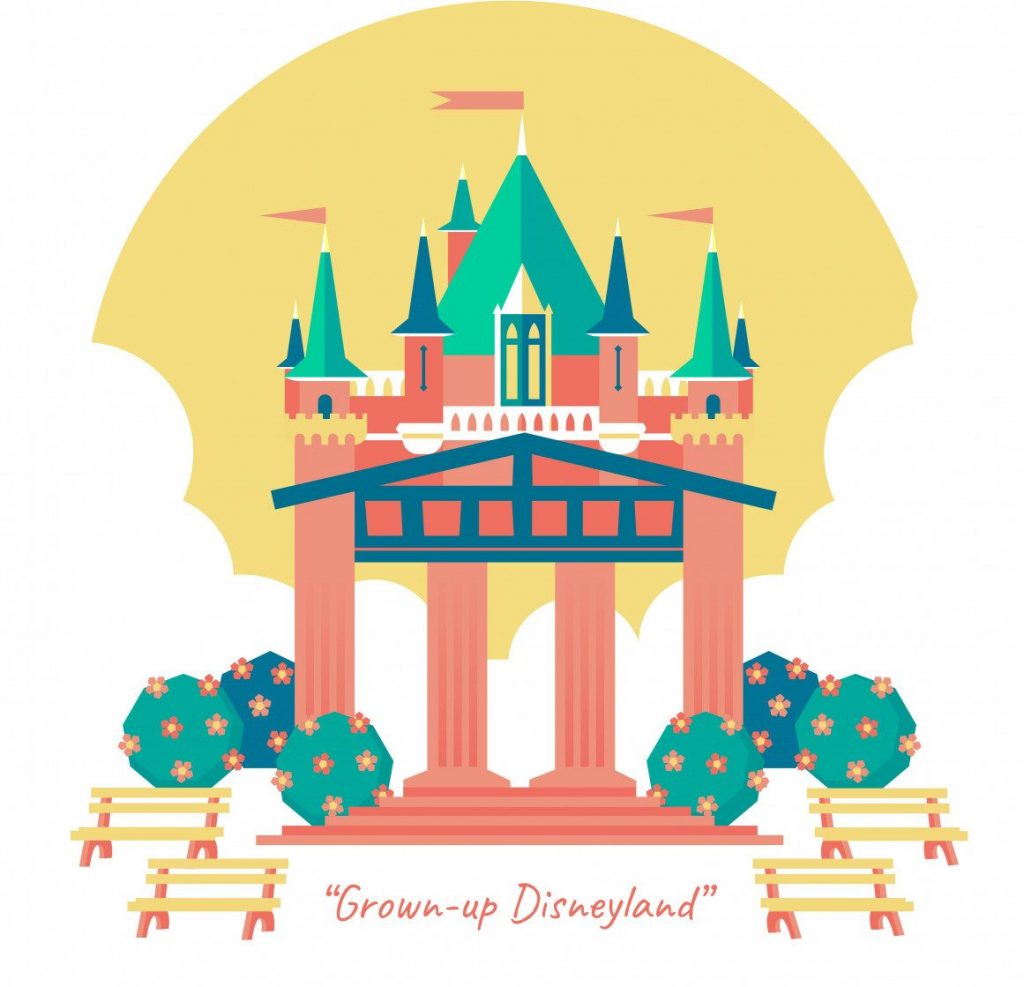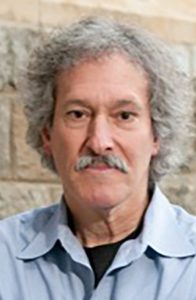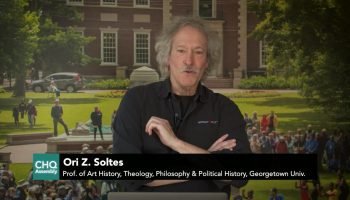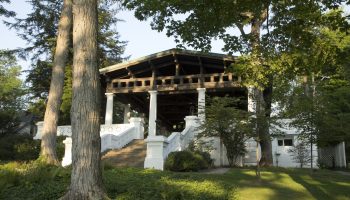
Ori Soltes has been a pass holder to his “grown-up Disneyland” of Chautauqua Institution for the past 23 seasons, and the move to the digital platform was no deterrent. Although he is never sure which ride to pick first, the Interfaith Lecture Series is always a highlight.

This season, he returns to that platform to explore “The Spiritual Soul and Political Body in Art.”
“You really can’t describe how (Chautauqua is) special if you haven’t been there. It’s just a unique environment (with) the kinds of questions that are being raised and asked,” Soltes said. “The interests that these people have in all these different things, it’s a unique kind of hothouse of sorts — it’s very compelling.”
Soltes is a professor of art history, theology, philosophy, and political history at Georgetown University, as well as the former director of B’nai B’rith Klutznick National Jewish Museum and a seasoned Chautauqua lecturer. He will speak on the Week Three interfaith theme of “Art: A Glimpse into the Divine” at 2 p.m. EDT Monday, July, 13 on the CHQ Assembly Video Platform.
Soltes is enamored with the subject at hand. In his lecture, he will be speaking on the interwoven nature of art, religion, and politics, as well as how they work together in the context of a democracy.
There are crisis moments where people, Americans in particular, become much more interested in spirituality and religion than they might otherwise be,” Soltes said. “America has always been a very religious country. We may separate church from state, but I find Americans far more religious than Italians, or French, Spanish or Germans. They all have state religions, but they are much more lowkey about it than we are.”
Soltes said that in the time of ancient Egypt, art was commissioned by those in the ruling class to depict them in a divine light to those beneath them. In the modern day, art is created as a “response,” either positive or negative, to show the artist’s interpretation of political leaders and their actions.
“It’s an angle of an artist who isn’t in the service of whoever is running the state, but rather responding to whoever is running the state to an audience of individuals, some of whom will disagree, some of whom won’t disagree with whatever he or she is depicting in that work of art,” he said.
In the last few decades, Soltes said he has seen a “reexploration” of religion in America.
“There are crisis moments where people, Americans in particular, become much more interested in spirituality and religion than they might otherwise be,” Soltes said. “America has always been a very religious country. We may separate church from state, but I find Americans far more religious than Italians, or French, Spanish or Germans. They all have state religions, but they are much more lowkey about it than we are.”
Given recent politically charged events such as the COVID-19 pandemic, rising unemployment rates and the Black Lives Matter movement, Soltes believes it is fair to say topics such as race and ethnicity have not been this “front and center” in religion since the 1960s.
“I would add religion in particular because of the religious aspect of what winds its way around the politics of the moment is particularly acute,” Soltes said. “It couldn’t be more relevant in this moment.”
As a seasoned lecturer, Soltes said he is excited to be a part of the new virtual experience and Q-and-A session — along with the potential of having a broader Chautauqan audience.
“The fact that anyone from anywhere can sign in and become a member of the Assembly and listen in to whatever lectures they want, means there’s a possibility of an even broader and more diverse audience than what is ordinarily the case,” Soltes said.
Soltes, like any other Chautauqua lecture speaker, hopes the audience enjoys his lecture, but more than that, he hopes people close the tab with a better understanding of the triangular connection between art, religion, and politics.
“If they thought about the subject at all, I hope it deepens and broadens the way they think about it,” Soltes said. “If they haven’t thought about it before, I hope it really introduces them to the reality that religion and politics have always been interwoven, that art has always served religion and therefore, by extension, has always served politics.”
Better yet, he is always up for a “challenge.”
“It really is just a fascinating topic,” Soltes said. “Aside from the challenge of talking to a camera instead of a large audience, there’s always a challenge of, ‘OK what can I squeeze into 40 minutes?’ I like that challenge.”
This program is made possible by The Myra Baker Low and Katharine Low Hembree Family Fund.




